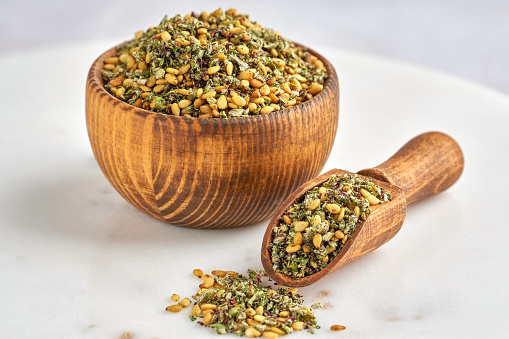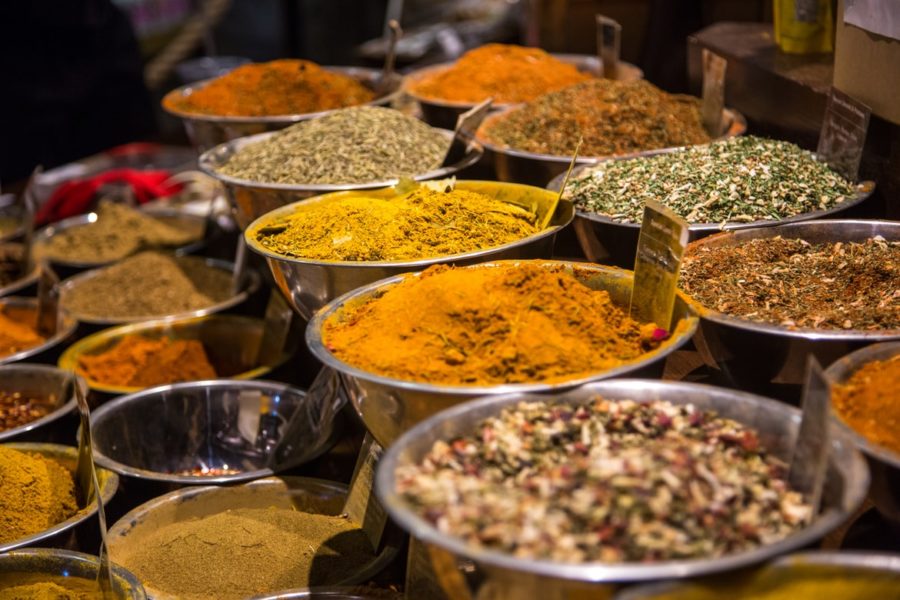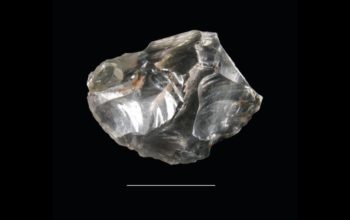Yesterday, September 23, 2021 was Za’atar Day.
“This is a term that is used to describe a culinary herb.”
The following written content via Days of the Year
You may never have heard of the word ‘Za’atar’ before, but we think it’s time that you definitely get to know it! This is a term that is used to describe a culinary herb. It is also used to describe a spice blend that people use as a condiment, especially in Middle Eastern cuisines, containing the herb itself, as well as salt, dried sumac, toasted sesame seeds, and other spices. Is your mouth watering yet? It certainly adds heaps of flavor to any sort of meal!

You pronounce Za’atar as zah-tar. It is a type of wild thyme, which is native to the Middle Eastern and Levantine Region. It is used to make the Za’atar blend, which we touched upon in the introduction. It is probably one of the world’s most versatile spices and condiments.
The blend is multi-purpose, as it has a tangy, savory taste, with a kick as the after bite. Because of this, it is used in a wide range of ways. A lot of people add it to olive oil for a delicious yet simple dip. It can also be used to add to baba gannouj, hummus, and labne, which is a thick cream made from yogurt. A lot of people also add it to salad dressings, roasting and sauteed vegetables, eggs, and chickpeas.
Or, you can use it as a rub for fish, meat, and chicken! As you can see, there really is no limit when it comes to the way that this versatile ingredient can be used! The great thing about Za’atar is that it can make plain food taste incredible.
This is probably why the most popular use for the blend is to mix it with olive oil and use it as a topping for mankoushe, which is a traditional Middle Eastern baked bread. If you’re wondering how to pronounce this bread, it is man-ou-sheh.
Health Benefits Of Za’atar
Not only does Za’atar taste amazing, but it has a number of health benefits as well. This includes the following…
- Strengthen bones – The first health benefit that is associated with Za’atar is that it can help to strengthen your bones. One thing that all of these herbs have in common is minerals. Therefore, between the high concretion of magnesium, copper, calcium, and iron, Za’atar can have a big impact on the density of your bone minerals.
- Improve mood – Studies have shown that there are links between Za’atar and decreased rates of depression and heightened mood.
- Increase energy – You will also notice that you get a powerful energy boost from Za’atar. It can get your metabolism moving because of the high concentration of flavonoids and polyphenols that are found within the spice mix.
- Soothe inflammation – Za’atar can also help to soothe inflammation. You can actually use it as a paste for your skin, rather than consuming it as a food. Putting it on inflamed areas of the skin, such as aching joints and bug bites, can have an effect that is similar to an anti-inflammatory effect.
- Clears respiratory tracts – There are a number of expectorant properties of thyme. It can help to clear the respiratory tracts, which will cause you to cough out mucus and phlegm. This makes it an excellent food to add to your diet if you feel a cold coming on.
- Relief from chronic disease symptoms – Last but not least, Za’atar acts as an antioxidant, protecting the body against free radicals that are responsible for a number of different health conditions.
How To Make Your Own Za’atar Blend
Of course, the best way to celebrate Za’atar Day is to make your own homemade spice blend. We’ve got a recipe to help you out with this…
Ingredients
- ¼ teaspoon or more of Aleppo chili flakes – it all depends on how much of a kick you like!
- ½ teaspoon kosher salt
- One tablespoon of sumac
- One tablespoon of toasted sesame seeds
- One tablespoon of ground coriander
- One tablespoon of ground cumin
- One tablespoon of dried thyme, which has been crushed
How to make your Za’atar blend
- Grab a small bowl, and mix all of the ingredients together.
- Simply store it in an airtight container.
- For the best flavor, you should toast the whole seeds of coriander and cumin until they are fragrant, and then grind them. However, if you do not have whole seeds, you can simply substitute them for ground spices.





